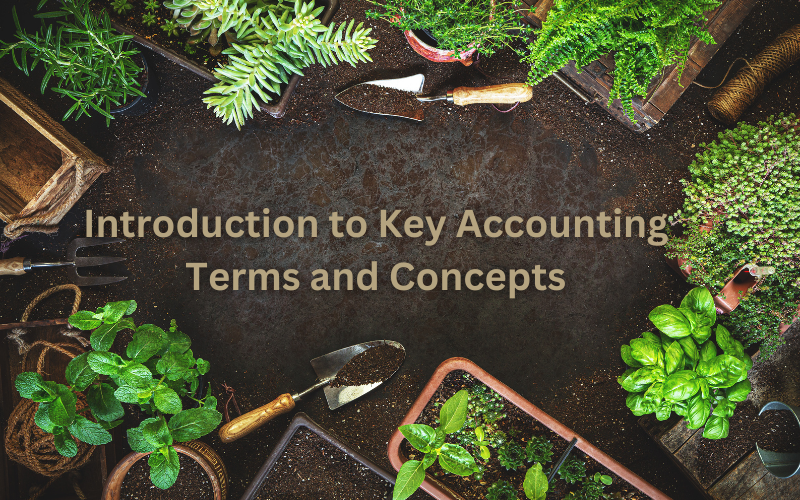
Introduction to key accounting terms and concepts
Running a successful landscaping business requires more than just a green thumb and a love for the outdoors. Just as crucial as selecting the right plants and designing beautiful gardens is understanding the financial health of your business. If accounting terms like ‘cash flow’ and ‘balance sheet’ make you want to run for the hills, fear not! I will break down the essential accounting concepts every landscaping business owner should know. Let’s dig in - pun totally intended!
Revenue (the money in your wallet)
Definition: Revenue is the total amount of money your business earns from selling services (like lawn care, garden design, or tree trimming) before any expenses are deducted.
Why it matters: Knowing your revenue helps you understand the top line of your business's income. It is the starting point for calculating profit, which is the real indicator of your business’s financial health.
Tip: Track all sources of revenue. Whether it is a big commercial contract or a small residential job, every pound counts.
Expenses (the weeds in your garden)
Definition: Expenses are the costs incurred in the process of earning revenue. This includes things like salaries, equipment maintenance, fuel, and even those fancy leaf blowers.
Why it matters: Keeping a close eye on expenses helps you manage your cash flow and ensure you are not spending more than you are earning.
Tip: Regularly review your expenses and look for areas to cut costs without sacrificing quality.
Cash Flow (the lifeblood of your business)
Definition: Cash flow is the net amount of cash moving in and out of your business. Positive cash flow means more money is coming in than going out, which is always a good thing.
Why it matters: Without positive cash flow, you cannot pay bills, buy supplies, or invest in new equipment.
Tip: Create a cash flow statement to track your monthly cash inflows and outflows. This will help you anticipate shortages and plan accordingly.
Profit and Loss Statement (your financial report)
Definition: A profit and loss statement summarises your revenues, costs, and expenses during a specific period, typically a month or a year.
Why it matters: This statement shows you whether your business is profitable. It helps identify trends in income and spending, guiding your future financial decisions.
Tip: Regularly review your profit and loss statement to spot any negative trends early and adjust your strategies accordingly.
Balance Sheet (your business snapshot)
Definition: A balance sheet provides a snapshot of your business’s financial condition at a specific point in time. It lists your assets (what you own), liabilities (what you owe), and equity (your ownership interest in the business).
Why it matters: This helps you understand the net worth of your business and assess its financial stability.
Tip: Ensure your balance sheet is up to date and accurate. This is crucial for making informed business decisions and securing loans or investments.
Accounts Receivable and Payable (who owes who?)
Definition: Accounts receivable is the money owed to your business by customers, while accounts payable is the money your business owes to suppliers.
Why it matters: Managing these accounts ensures you are collecting payments on time and paying your bills, which keeps your cash flow healthy.
Tip: Set clear payment terms with your customers and follow up promptly on overdue invoices.
Depreciation (the wear and tear of your equipment)
Definition: Depreciation is the process of allocating the cost of a tangible asset over its useful life. It accounts for the wear and tear on your equipment over time.
Why it matters: Depreciation impacts your profit and loss statement and helps you understand the long term value of your assets.
Tip: Keep track of your equipment’s purchase dates and calculate depreciation annually. This will help in planning for future equipment replacements.
To conclude, understanding these key accounting terms and concepts is like having a well maintained garden. With the right knowledge and tools, you can ensure your landscaping business flourishes financially. Remember, just as you would not ignore a patch of weeds overtaking a client’s garden, do not ignore the numbers that tell the story of your business. Happy landscaping and happy accounting!
